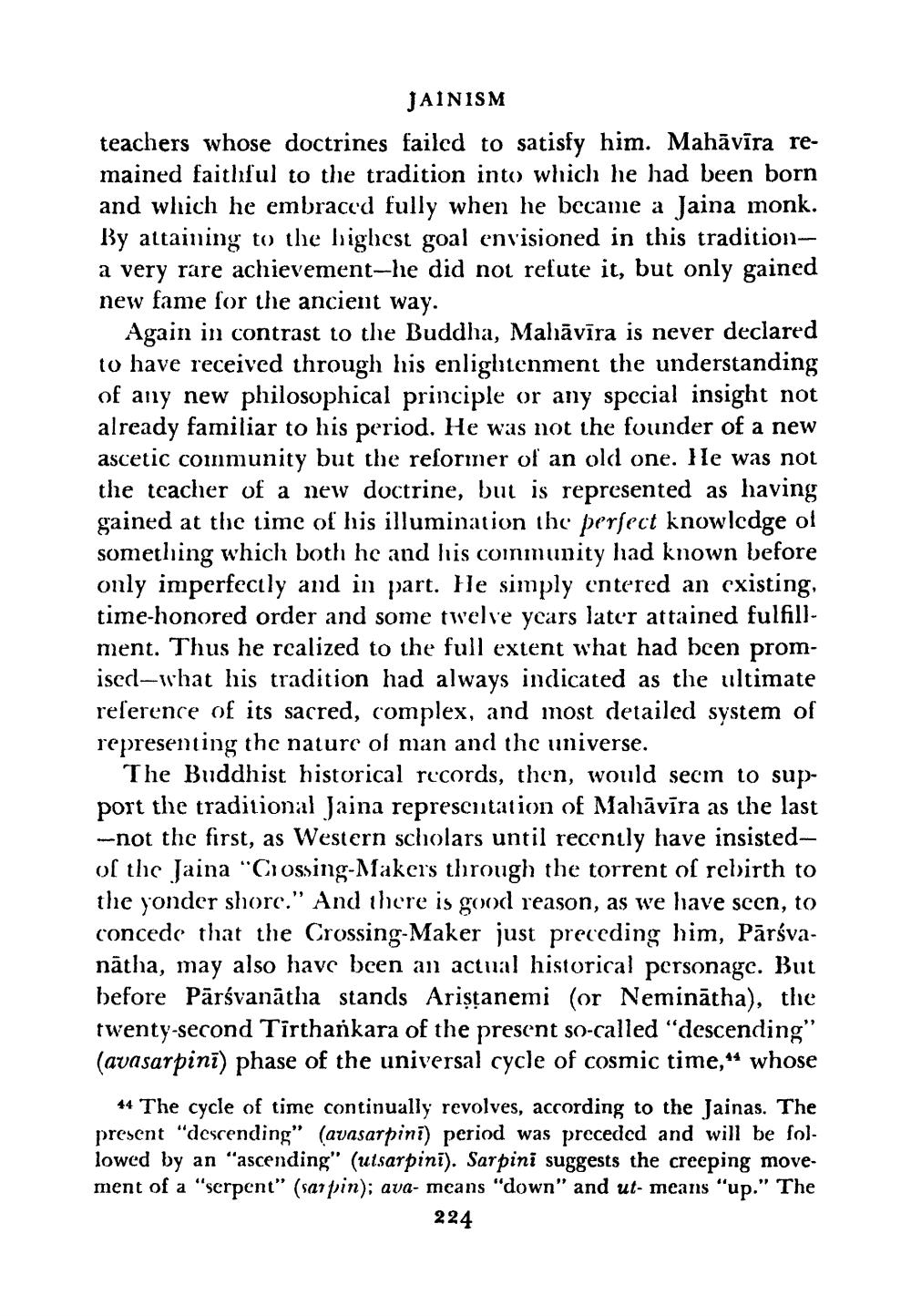________________
JAINISM
teachers whose doctrines failed to satisfy him. Mahāvīra remained faithful to the tradition into which he had been born and which he embraced fully when he became a Jaina monk. By attaining to the highest goal envisioned in this traditiona very rare achievement-he did not refute it, but only gained new fame for the ancient way.
Again in contrast to the Buddha, Malāvīra is never declared to have received through his enlightenment the understanding of any new philosophical principle or any special insight not already familiar to his period. He was not the founder of a new ascetic community but the reformer of an old one. He was not the tcacher of a new doctrine, but is represented as having gained at the time of his illumination the perfect knowledge of something which both he and his community had known before only imperfectly and in part. He simply entered an existing, time-honored order and some twelve years later attained fulfillment. Thus he rcalized to the full extent what had been promised-what his tradition had always indicated as the ultimate reference of its sacred, complex, and most detailed system of representing the nature of man and the universe.
The Buddhist historical records, then, would secm to support the traditional Jaina representation of Mahāvīra as the last
not the first, as Western scholars until recently have insistedof the Jaina "Crossing-Makers through the torrent of rebirth to the yonder shorc.” And there is good reason, as we have seen, to concede that the Crossing-Maker just preceding him, Pārsvanātha, may also have been an actual historical personage. But before Pārsvanātha stands Ariştanemi (or Neminātha), the twenty-second Tirthankara of the present so-called "descending" (avasarpini) phase of the universal cycle of cosmic time," whose
44 The cycle of time continually revolves, according to the Jainas. The present "descending" (avasarpini) period was preceded and will be followed by an “ascending" (utsarpini). Sarpini suggests the creeping movement of a "serpent" (sarpin); ava- means "down" and ut- means "up." The
224




